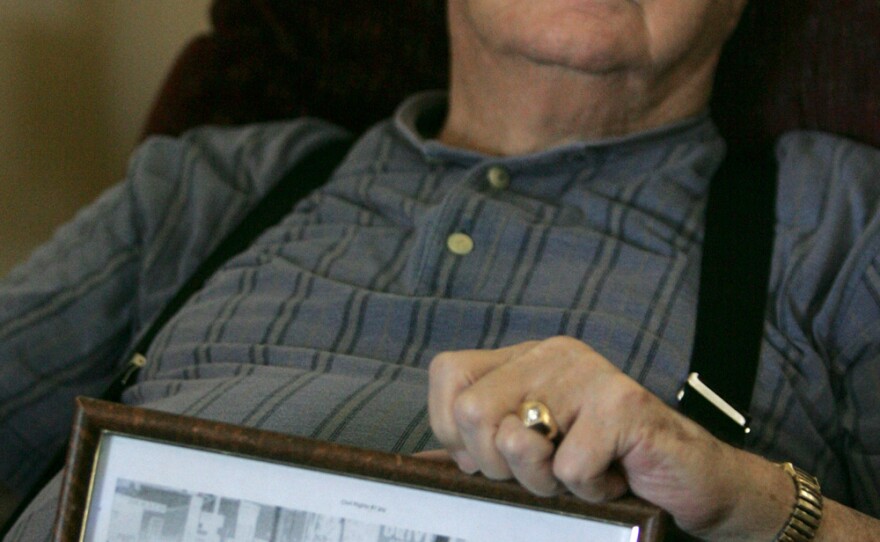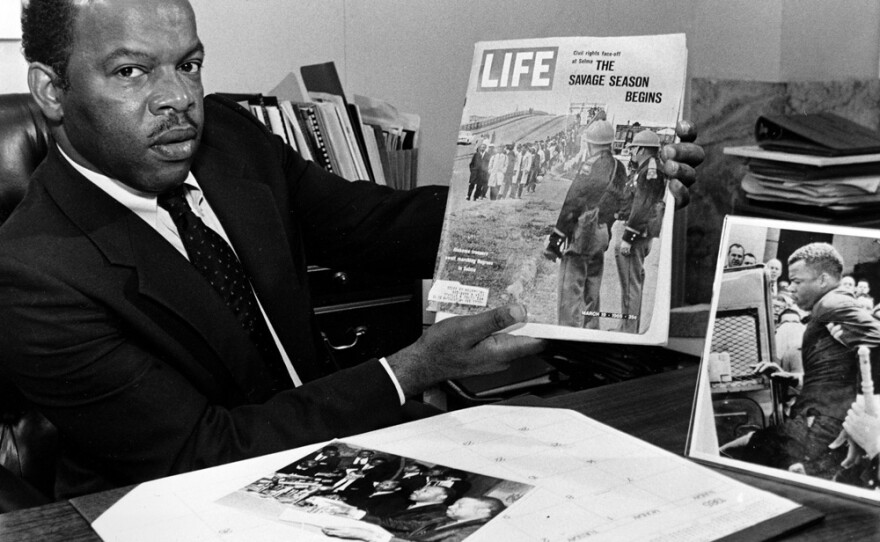Students who formed the Student Nonviolent Coordinating Committee in the 1960s, which protested segregated lunch counters, movie theaters and bus stations, returned this week to Raleigh, N.C., to commemorate the group's 50th anniversary.
Hundreds of civil rights veterans — black and white — have gathered at Shaw University in Raleigh for an anniversary conference and reunion. They've come to celebrate and, they say, to inspire others.
Among the speakers at the four-day event is Julian Bond, one of the group's founders, who began leading demonstrations in Atlanta in 1960.
"What began 50 years ago is not just history," Bond says. "It was part of a mighty movement that started many, many years before that and continues on to this day — ordinary women, ordinary men proving they can perform extraordinary tasks in the pursuit of freedom."
Back in April 1960, when the students first came together, the South's public facilities and public transportation were segregated. So-called "freedom riders" went south to confront discrimination.
An Apology
As members of SNCC recall their civil rights campaigns at the event, Elwin Wilson, 73, sits in his living room in neighboring Rock Hill, S.C. He also recalls the protests, but back then, he was on the other side. In 1961, Wilson was angry and waiting when a civil rights activist named John Lewis — then 21 years old — got off a bus in this small Southern city.

"The bus pulled in. He got out and started over there to the door," Wilson says. The former Klan member, who is in poor health, says he started beating Lewis as he opened the door to a "whites only" waiting room.
"I remember him laying there, and it was blood on the ground and somebody done called the police," Wilson says.
Years later, Wilson realized the protester he had attacked was John Lewis, who had become a member of the U.S. House of Representatives. Last year, Wilson finally apologized in person. Here's how Lewis, a Georgia Democrat, described the meeting:
"I said to him, 'I forgive you.' I don't have any ill feelings, any bitterness, any malice. He gave me a hug. I hugged him back. He cried a little, and I cried."
The Congressman says it was a powerful meeting that shows racial attitudes can change.

"Well, it was a moment of grace, a moment of forgiveness and a moment of reconciliation, and that's what the movement, that's what the struggle was all about," Lewis says.
Wilson says he found the Lord and realized he was wrong.
"If I can just get one person not to hate, it's worth it," Wilson says.
'Remain Radical Enough'
Some in Rock Hill had hoped that more apologies would come.
"Keep in mind that Mr. Wilson is not the only one of the hecklers who were present then who are still in Rock Hill," says Melvin Poole, president of the local NAACP chapter. "But he is the only one who has publicly and privately come forward to apologize."
These are the kinds of struggles those gathering in Raleigh are looking back on this week, and they're also looking forward to what many say are the civil rights challenges that still exist.
"This requires that even with our gray hair, we shall remain radical enough to insist on ceaseless action until the abuses are addressed and eliminated that moved us for a decade to nonviolently raise hell," says Timothy Jenkins, a founding member of SNCC.
This weekend, these leaders are attempting to reach a new generation, who, they hope, will take up the struggle.
Copyright 2022 NPR. To see more, visit https://www.npr.org. 9(MDAzMjM2NDYzMDEyMzc1Njk5NjAxNzY3OQ001))






